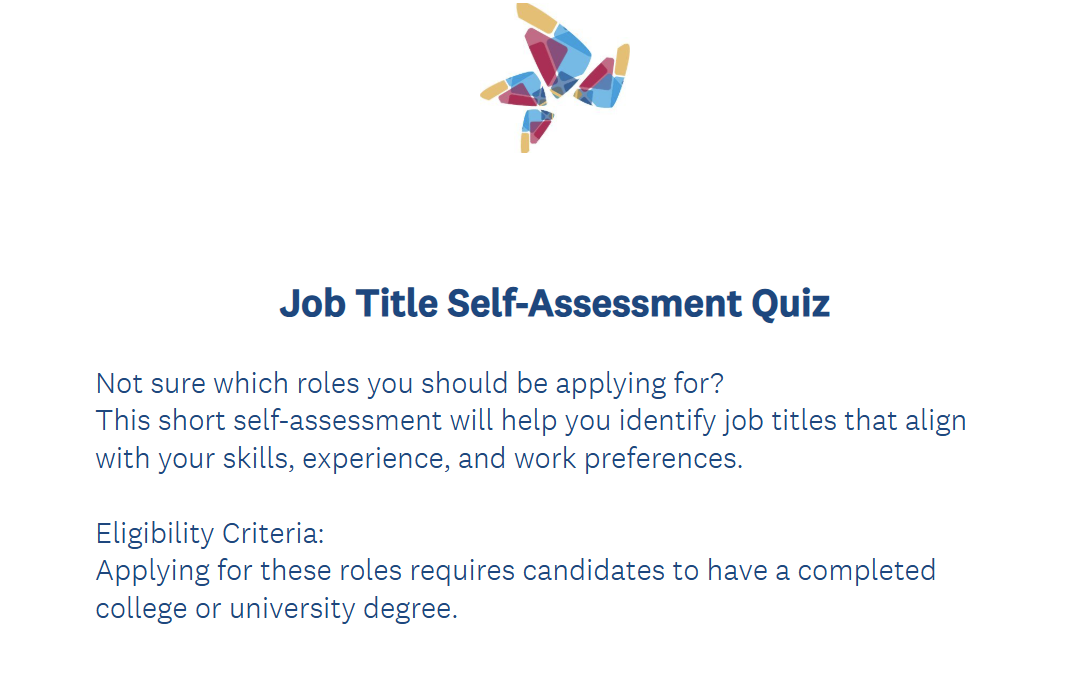
Picture this: a new grad, fresh out of school, brimming with youthful energy and enthusiasm. They are ready to take on the world and make the impact they have been working for their entire lives. They apply for 10s and 100s of jobs, with no end in sight. But they have nowhere to go but their family’s basement, maybe. We’ve been reading about these stories, over and over again. According to Statistics Canada, the unemployment rate among youth aged 15 to 24 reached a new high of 3.3% in December. This impact is not just numbers; it’s affecting our youth and their mental health. The more time they spend trying and failing to secure employment, the greater the hit on them will be.
Job Seeker Burnout is real, affecting youth and older people alike. It can manifest itself differently, yes, even if you don’t actually have a job.
You think you might be struggling with job seeker burnout? Take this assessment for more information and stick around as we delve deeper into what causes it and how to overcome it.
Reasons for Job Seeker Burnout
Several factors specific to the Canadian job market in 2025 are intensifying job search burnout.
The Ghosting Epidemic
Ghosting, once considered unprofessional, has become normalized in hiring practices. You invest hours in application materials, sometimes complete multiple interview rounds, and then hear absolutely nothing. No rejection email. No explanation. Just silence.
This behavior violates basic norms of professional courtesy and respect. It leaves candidates in limbo, unable to get closure or learn from the experience. The psychological impact is significant because uncertainty is one of the most stressful states for the human brain. You can’t move forward because you’re still waiting. You can’t learn and improve because you received no feedback. You’re simply left to wonder what went wrong.
The Application Race
Modern job searching has become a numbers game. Career advisors suggest applying to dozens or even hundreds of positions to improve your odds. But this volume approach is exhausting and counterproductive. Each application requires customization to be competitive, yet the sheer number needed makes genuine personalization nearly impossible.
You find yourself caught in an impossible bind. Apply to fewer jobs with greater customization, and you risk missing opportunities while waiting for responses that may never come. Apply broadly with less customization, and your applications get filtered out by applicant tracking systems or dismissed by hiring managers as generic.
This race creates a perpetual state of hustle without rest. There’s always one more application you could submit, one more job board to check, one more networking message to send. The work is never done, the finish line never in sight, and the return on investment increasingly unclear.
Financial Pressure and Identity Loss
For many job seekers, financial stress adds urgency and desperation to an already difficult process. Savings dwindle. Bills accumulate. The pressure to accept any offer, even one that’s poorly suited to your skills or detrimental to your wellbeing, intensifies with each passing month.
Beyond financial concerns, prolonged unemployment threatens your sense of identity. In a culture that ties self-worth to productivity and professional achievement, being unemployed can feel like being nobody.
The Skilled Worker Paradox
Despite rising unemployment, job vacancy data shows employers struggling to fill positions, with 27% of vacancies being long-term in Q3 2025. This creates a frustrating paradox: there are jobs available, but many require very specific combinations of skills, experience, and qualifications that don’t match the available workforce.
Job seekers often find themselves simultaneously overqualified and underqualified. You have years of experience but in the “wrong” industry. You have relevant skills but lack one specific certification. This constant near-miss experience is psychologically draining.
Special Challenges: New Grads, Newcomers, and People with Disabilities
Certain groups are more vulnerable to job search burnout due to systemic barriers and additional stressors, which is why organizations like Career Edge exist to provide equity to people vulnerable to these issues.
New Graduates
You enter the job market with optimism and often substantial student debt, expecting your degree to open doors. Instead, you encounter the catch-22 of needing experience to get experience. Entry-level positions require 2 to 3 years in the field. Internships that could provide experience are unpaid or underpaid, often inaccessible to those without family financial support.
The disconnect between educational preparation and employer expectations is stark. Your degree taught you theory and foundational skills, but employers want immediately applicable technical proficiencies and industry-specific knowledge. The gap between what you have and what’s demanded feels insurmountable, breeding doubt about whether your education was worth the investment.
Newcomers to Canada
If you’re a newcomer, you face the compounding stress of job searching while adjusting to a new country, culture, and potentially a new language. Your credentials and experience from your home country may not be recognized or valued equally in the Canadian market, requiring costly and time-consuming credential assessments or additional certifications.
The networking that often leads to employment opportunities is particularly challenging when you’re new to the country and haven’t yet built professional connections. You may encounter subtle or overt bias in hiring processes. The combination of cultural adjustment, potential language barriers, financial pressure, and job search stress creates an especially potent recipe for burnout.
People with Disabilities
Job searching with a disability involves navigating additional layers of complexity and potential discrimination. You must decide when and how to disclose your disability, balancing authenticity with awareness that disclosure may impact hiring decisions. You need to assess whether workplaces can accommodate your needs, adding another dimension of research and evaluation to each application.
The job search process itself may present accessibility barriers: application systems that don’t work with assistive technologies, interview formats that don’t accommodate communication differences, or job descriptions with unnecessary physical requirements that exclude qualified candidates. Each barrier represents another exhausting hurdle in an already challenging process.
Strategies for Managing and Recovering from Job Search Burnout
If you’re experiencing job search burnout, recovery requires a multi-faceted approach that addresses both the practical challenges of job hunting and the psychological toll it’s taking.
Reframe the Job Search as a Marathon, Not a Sprint
One of the most damaging mindsets in job searching is the belief that you should be grinding constantly. This hustle mentality leads to exhaustion without proportionally better results. Instead, treat job searching like a sustainable long-term project.
Set specific, limited work hours for your job search. Perhaps you dedicate mornings to applications and afternoons to skill development or self-care. Give yourself permission to “clock out” and truly disconnect. Job searching is work, and work requires boundaries to prevent burnout.
Accept that finding the right opportunity may take time, especially in a challenging market. This doesn’t reflect on your worth or abilities. It reflects labor market realities, including the elevated long-term unemployment numbers and difficult hiring conditions throughout 2025. Patience with the process and with yourself is essential.
Prioritize Quality Over Quantity
While conventional wisdom suggests submitting high volumes of applications, this approach often accelerates burnout without improving outcomes. Consider shifting to a quality-focused strategy. Research companies thoroughly and apply selectively to roles that genuinely align with your skills, values, and career goals.
For each application, invest time in customization. Tailor your resume to highlight relevant experience. Write a cover letter that demonstrates genuine interest and understanding of the company’s needs. This approach yields fewer applications but potentially higher quality connections and greater satisfaction in the process.
Track your applications systematically. Note which job boards, types of companies, or approaches yield the most responses. Over time, you’ll identify patterns that allow you to focus your energy more effectively. This data-driven approach provides a sense of control in an otherwise uncertain process.
Build Structure and Routine
Unemployment often eliminates the structure that work provides: set schedules, clear tasks, social interactions, and purposes beyond yourself. Recreating structure is essential for mental health and sustainable job searching.
Establish a consistent daily routine that includes job search activities but isn’t consumed by them. Perhaps you exercise in the morning, spend two focused hours on applications, take a lunch break, dedicate afternoon time to skill development or networking, and reserve evenings for personal pursuits.
Include activities that provide a sense of accomplishment outside of job hunting. This might be volunteering, creative projects, physical challenges, or learning new skills. These pursuits combat the reduced efficacy dimension of burnout by reminding you that you’re capable and valuable beyond employment status.
Manage the Emotional Impact of Rejection and Ghosting
Rejection and silence hurt. Pretending they don’t is counterproductive. Instead, develop healthy strategies for processing these experiences without letting them define your self-worth.
Create a rejection ritual that acknowledges the disappointment without dwelling on it. Maybe you allow yourself five minutes to feel frustrated, then deliberately shift focus to something positive or productive. Some job seekers keep a “rejection collection” that tracks every “no” as proof of effort and resilience rather than failure.
Remember that hiring decisions involve numerous factors unrelated to your qualifications: internal politics, budget changes, hiring manager preferences, timing, candidate pools, and sometimes pure chance. A rejection isn’t a referendum on your worth as a professional or person. It’s simply a poor fit between what you offered and what they were seeking at that specific moment.
When ghosted after interviews, send a brief, professional follow-up email asking for an update. If you receive no response, give yourself permission to mentally close that chapter. The ghosting reflects poorly on the employer’s professionalism, not on your candidacy.
Protect Your Mental Health
Job search burnout is fundamentally a mental health issue, and addressing it requires treating it as such.
If you have access to mental health services through previous employment benefits, extended health coverage, or provincial programs, use them. A therapist can provide tools for managing anxiety, processing rejection, and maintaining perspective. If professional help isn’t accessible, consider free or low-cost alternatives like employee assistance programs, community mental health centers, or online support groups for job seekers.
Maintain social connections even when you feel like withdrawing. Isolation intensifies negative thought patterns and removes you from potential support and opportunities. Be honest with trusted friends and family about your struggles. You don’t need to perform optimism for everyone, and genuine connection provides resilience.
Prioritize physical health as a foundation for mental wellbeing. Regular exercise, adequate sleep, and nutritious food aren’t luxuries when money is tight; they’re essential investments in your capacity to sustain the job search. Depression and anxiety often manifest physically, so caring for your body supports your emotional state.
Diversify Your Job Search Approach
Relying solely on online applications is often a path to frustration. While job boards are necessary, they shouldn’t be your only strategy.
Networking remains one of the most effective paths to employment, though it requires different skills than application submissions. Reach out to people in your field for informational interviews. Join professional associations or industry groups. Attend virtual or in-person events. The goal isn’t immediate job offers but building relationships that may lead to opportunities down the line.
Consider alternative pathways into employment. Internships, contract work, or temporary positions might not be your ideal permanent role, but they can provide income, recent experience, and connections while you continue searching. Organizations like Career Edge specialize in connecting employers with diverse talent through paid internship programs, offering a structured pathway that avoids unpaid exploitation while building Canadian work experience.
Explore skill development opportunities that enhance your marketability. Free or low-cost online courses can fill gaps in your knowledge. Certifications in high-demand areas make you more competitive. Volunteer work in your field provides recent, relevant experience while contributing to your community.
Seek Support from Organizations That Understand
You don’t have to navigate job search burnout alone. Numerous Canadian organizations provide support specifically for job seekers.
Career Edge has spent 30 years connecting qualified talent with leading Canadian employers through paid internship programs. If you’re a new graduate, newcomer to Canada, or person with a disability, Career Edge’s programs provide structured pathways to employment with over 1,000 partner employers across the country, including major organizations like RBC, Bell, and the City of Toronto. With more than 16,000 successful placements, Career Edge understands both the challenges job seekers face and the pathways that lead to sustainable employment.
Beyond specific programs, connecting with others experiencing similar challenges can reduce the isolation and shame that intensify burnout. Whether through online communities, local job seeker support groups, or professional associations, shared experience validates your struggles and provides practical strategies from those who understand firsthand.
Moving Forward: From Burnout to Recovery
Job search burnout is real, valid, and increasingly common in Canada’s current labor market. It’s not a sign of weakness, laziness, or inadequacy. It’s a natural psychological response to prolonged stress, uncertainty, and rejection in a system that often feels broken.
Recovery isn’t linear. You’ll have days where you feel energized and hopeful, and days where you can barely bring yourself to open your laptop. That’s normal. Progress might be incremental: applying to three jobs with genuine care instead of ten with resentment, having one authentic networking conversation, or simply making it through a difficult day without completely losing hope.
Remember that your worth isn’t determined by your employment status. You are not your resume. You are not the sum of rejections you’ve received. You’re a skilled, capable person navigating an objectively difficult situation. The job market’s failure to recognize your value quickly doesn’t diminish that value.
If you’re experiencing severe burnout with significant impacts on your mental or physical health, please reach out for professional help. Your wellbeing is more important than any job. Sometimes the most productive thing you can do for your job search is to step back, recover, and return when you’re in a healthier state.
The right opportunity will come. It may not be today, or this month, or even this quarter. But sustainable employment that values your contributions does exist. Protecting your mental health while you search isn’t selfishness; it’s strategic. You’ll be a better candidate, employee, and human when you’re not running on empty.
For deeper insights into burnout itself, including its causes, symptoms, and treatment strategies, read our comprehensive guide: Burnout: Symptoms, Causes, and Treatment Strategies. This article provides research-based information on understanding and addressing burnout across all contexts.










